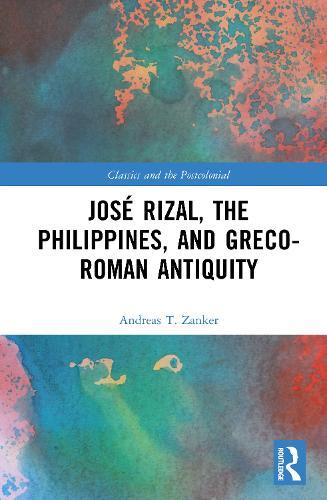Overview
This volume is the first extended investigation of the classicism of José Rizal (1861–1896), the de facto national hero of the Philippines, and explores how Greco-Roman antiquity was harnessed by Rizal and other Philippine artists and thinkers at the end of the Spanish colonial period. Rizal lived at a crucial juncture in his nation’s history, and Zanker argues that Rizal’s writing and thought represents a rich and evolving example of late-colonial classical reception. The volume illustrates how the forms of knowledge associated with Greco-Roman antiquity were put to creative and powerful new tasks in the attempts of Rizal and his contemporaries to redefine the relationship between Spain and its most distant colony. It not only explores the presence of Greco-Roman antiquity in Rizal’s novels but also his lesser-known works in a roughly chronological order. Besides covering the entirety of Rizal’s surviving works, Zanker considers the role of antiquity in the paintings of Juan Luna and in Rizal’s parsing of his friendship with his Austrian collaborator, Ferdinand Blumentritt. José Rizal, the Philippines, and Greco-Roman Antiquity is of interest to students and scholars of Classics, particularly Classical Reception, and the colonial-era Philippines, as well as Latin American Studies, Southeast Asian Studies, and Postcolonial Studies more broadly.
Full Product Details
Author: Andreas T. Zanker (The University of Western Australia, Australia.)
Publisher: Taylor & Francis Ltd
Imprint: Routledge
Weight: 0.630kg
ISBN: 9781032737935
ISBN 10: 103273793
Pages: 262
Publication Date: 15 October 2025
Audience:
College/higher education
,
Tertiary & Higher Education
Format: Hardback
Publisher's Status: Active
Availability: Not yet available

This item is yet to be released. You can pre-order this item and we will dispatch it to you upon its release.
Reviews
""The author makes a compelling argument about the complex ways by which Greco-Roman culture, especially Latin, was a double edged sword: used by educated, upper class colonial subjects--both native and mestizo--to signal their deference to colonialism but also to carve out spaces of critique and resistance... In his careful excavation of Greco-Roman (and Egyptian) references in Rizal's work, he demonstrates the extent of nationalism's hybrid origins and its originary cosmopolitanism that gave it a powerful appeal. I know of no one with Zanker's erudition and command of multiple languages as well as a thorough grounding in both the classics and postcolonial theory who could've possibly undertaken this work. It is truly impressive."" - Vicente L. Rafael, Professor of History, University of Washington
Author Information
Andreas T. Zanker is a lecturer in the Department of Classics and Ancient History at the University of Western Australia. He is the author of Horace (Brill Research Perspectives in Classical Poetry) (2024), Metaphor in Homer: Time, Speech, and Thought (2019), and Greek and Latin Expressions of Meaning (2016).



